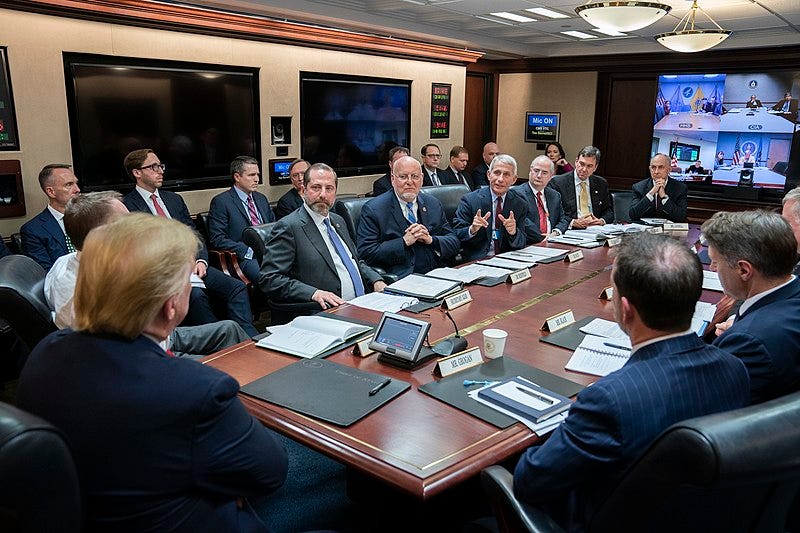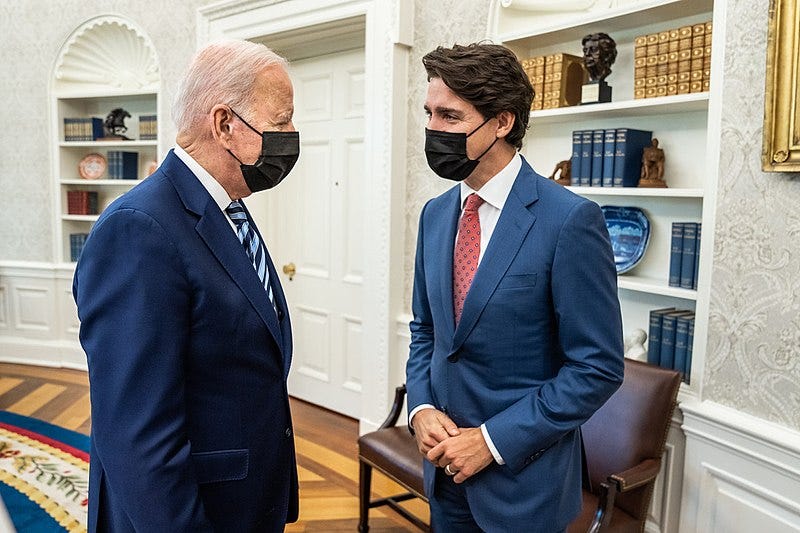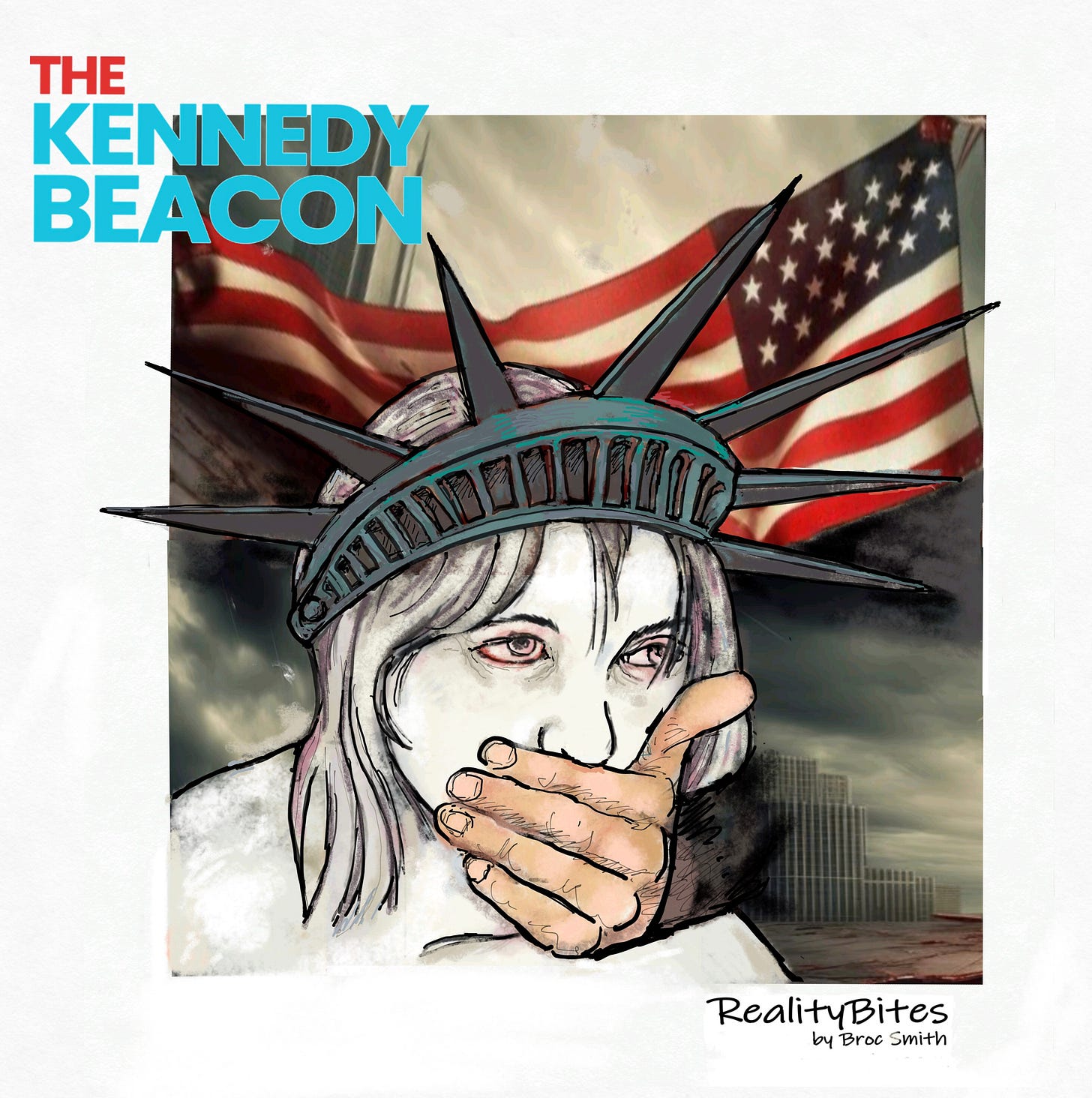On March 18, 2024, the Supreme Court will hear arguments in Murthy v. Missouri, formerly known as Missouri v. Biden. The ruling could be one of the most consequential in US history. At stake is the fundamental question of whether the executive branch and the agencies under its purview have a constitutional right to tell private companies to censor the speech of American citizens.
According to the First Amendment, Congress shall make no law “abridging the freedom of speech, or of the press; or the right of the people peaceably to assemble, and to petition the Government for a redress of grievances.”
Noticeably absent from this text is any qualification on the nature of the protected free speech.
If the Supreme Court rules in favor of the Biden administration, the possession of rights and freedoms that previous generations of Americans always assumed were constitutionally protected, without caveat, could end.
What Was Censored?
The censored speech that led to the filing of Missouri v. Biden is most remarkable for its thematic diversity. Among the content censored were scholarly opinions from medical doctors at globally renowned universities; the opinions of celebrities; online satire from social media accounts with few followers; the work of journalists from respected publications; reporting from a major publication owned by a publicly traded company; public policy statements of a current presidential candidate, Robert F. Kennedy Jr.; the personal account of a serving president, Donald Trump; citizens’ expressions of concern over COVID-19 mandates; and other forms of public advocacy and information sharing.
Prior to the release of the Twitter Files in December 2022, the official explanation was that social media companies were acting autonomously. However, under Elon Musk’s new ownership of Twitter, now called X, journalists were given unprecedented access to communications between the company’s executives and White House officials, as well as officials from the FBI, the Department of Homeland Security, and other agencies. Elements of the Twitter Files formed a substantial portion of the evidence presented by plaintiffs in Missouri v. Biden, which now, as Murthy v. Missouri, awaits a final decision by the Supreme Court.
How the Government Censors Citizens
Although most closely associated with COVID-19, the “censorship industrial complex” predates the pandemic. As The Kennedy Beacon reported, in January 2017, weeks before the inauguration of President Trump, a “former” British intelligence officer was in President Obama’s White House when orders were given to form a “counter-disinformation project” aimed at stopping a “repeat” of the 2016 election in which Donald Trump, a populist political outsider, secured victory over the establishment’s favored candidate, former secretary of state Hillary Clinton.
This led to the formation of a supposedly independent group called the Cyber Threat Intelligence League (CTIL). The group worked closely with federal agencies to “recommend” online content worthy of censorship. Federal agencies then “dutifully” instructed and/or coerced social media companies to censor, blacklist, or suppress the content deemed a “danger” by CTIL.
Thereafter, a template was established:
Step 1: A nonprofit, volunteer, or academic body is formed with the connivance and approval of federal officials.
Step 2: Said group publicly labels individuals, social media accounts, and independent media organizations “dangerous” insofar as they spread “disinformation” or “misinformation.” These groups discuss lists of “undesirables” with decision makers at federal agencies and, after 2021, with the White House directly.
Step 3: Federal officials contact social media companies to request or demand that they censor the content proscribed by the “independent” group.
Step 4: The condemned content and its creators are censored from major social media platforms.
This pipeline of censorship appears designed to hide the fact that censorship is coming from the government.
Plausible Deniability
Earlier attempts to stop censorship by social media companies had relied on the fact that such companies are classed as operators of “platforms” rather than as publishers. Section 230 of the Communications Decency Act of 1996 gives a liability shield to social media companies that could otherwise be subject to defamation or obscenity lawsuits. Thus, it was argued that such platforms cannot act as publishers that pick and choose what otherwise legally protected content to display. On these terms, the Trump administration argued that Section 230 should be invoked to stop the censorship of lawful free speech by social media companies.

Although arguments over the application of Section 230 continue, much of the impetus behind such arguments was made moot by Missouri v. Biden. This is because the evidence presented by plaintiffs demonstrated beyond a reasonable doubt that social media companies did not act independently as publishers when engaging in noted examples of censorship in recent years. Instead, the censorship was directed by the federal government while social media companies acquiesced.
The “independent” groups were designed to provide plausible deniability to accusations that federal agencies and the executive branch were directly responsible for the censorship. In this sense, the groups acted as adjuncts of federal agencies.
During the Trump administration, these groups colluded with federal agencies that are theoretically answerable to the White House. This collusion, however, demonstrated a unique phenomenon of “independent” pro-censorship groups and federal agencies directly conspiring not only against the free speech of ordinary citizens, but against that of President Trump himself. No evidence so far presented suggests that Trump had any direct knowledge of the censorship pipeline operating under his nose, even while he complained about censorship with increased frequency.
Following the inauguration of President Biden, the White House went from a largely oblivious victim of censorship to an active participant in censorship. It is set to defend the censorship pipeline before the Supreme Court.
Uncontested Facts
In appealing to the Supreme Court to uphold its censorship practices, the Biden administration does not contest the fact that it directly contacts social media companies to demand the censorship of user-generated content. Therefore, the myth that independent companies and advisory bodies made decisions to censor speech – independent of government interference – has been shattered by the very people who once gaslighted their victims by denying government involvement.

Likewise, the Biden administration does not seek to excuse, let alone condemn, the fact that many members of “independent” groups calling for censorship, as well as many executives in social media company boardrooms, are former officials from federal intelligence agencies, as reported by Twitter Files journalist Matt Taibbi. For the Biden administration, these apparent conflicts of interest are “business as usual.”
What It Means to You
The letter, spirit, and traditional understanding of the First Amendment holds that government requires no shield from criticism and opposition. One of the many purposes of the First Amendment is to protect people from the whims of political leaders terrified of such criticism. It is therefore a perversion of the Constitution to suggest that censorship of engaging, provocative, or dissident content is a good thing that “protects people from themselves.”
The Justices of the Supreme Court have been entrusted with a generationally important responsibility when they rule on Murthy v. Missouri in March. Their decision will impact the consumers of free speech as much as it will the speakers, writers, and content creators who serve them.
Adam Garrie is a writer, speaker, and consultant on a wide range of current affairs as well as political risk. He is also the co-founder of HiCyrus, a data-driven tech startup that aims to fully democratize information access.









You've published an excellent summary of the events leading up to the current case before the Supreme Court. Thank you!
Is Bobby free to stray from the Zionist script on what he woulda, coulda, shoulda have done in West Palestine?